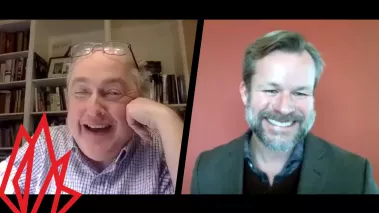Table of Contents
DEBATE: Do DEI statements undermine academic freedom?

Diversity, equity, and inclusion. In recent years, these three terms have taken higher ed by storm, becoming the subject of much discussion, disagreement, and controversy: from California, where the Community Colleges Board of Governors proposed adding DEI and accessibility criteria to evaluation and tenure review for all faculty; to Florida, where Gov. Ron DeSantis proposed banning DEI programs at all the state’s colleges.
But what do these concepts really signify? Are they relevant to the teaching and learning function of a university? If not, what criteria should govern schools’ hiring and evaluation practices? If so, how should prospective and current faculty enact DEI criteria?
Professors Leiter and Soucek’s DEI deep-dive plunges below surface-level characterizations of diversity, equity, and inclusion and illuminates the nuanced considerations at the core of these concepts.
These are the questions Brian Leiter, University of Chicago professor of jurisprudence, and Brian Soucek, UC Davis professor of law, explore in a spirited debate about whether DEI statements undermine academic freedom in higher ed. The virtual event, moderated by FIRE’s Director of Faculty Outreach Komi Frey, shed light on these complex issues and energized the audience of more than 200 members of FIRE’s Faculty Network, whose questions exceeded the duration of the Q&A period.
Leiter takes the affirmative side of the debate, arguing that DEI statements limit professors’ ability to choose their research and pursue it as they see fit. Imposing DEI statements on faculty, he believes, can amount to viewpoint discrimination and compelled speech, forcing professors to toe an ideological line irrelevant to their field of study. He also took issue with some of the ways commitments to DEI are measured: “Diversity almost always means racial or ethnic diversity and not, say, intellectual or ideological diversity,” he said.
Soucek, on the other hand, said he takes criticism of DEI statements seriously, but believes that DEI statements need not violate the principles of academic freedom. If they’re developed bottom-up by an academic department and based on DEI-related behaviors instead of buzzwords, he argues, they can further the teaching, learning, and research goals of a university. For example, they can “[disrupt] patterns of exclusion” by encouraging faculty to include a wider range of examples in their teaching materials, aiding their ability to disseminate knowledge to students.
After each professor made his case, they engaged in a back-and-forth about the issues, then responded to questions from the audience. Among other things, audience members asked whether it’s possible to distinguish commitments to DEI from commitments to other values, whether DEI requirements disadvantage non-American applicants who are unfamiliar with DEI-related terminology, and whether DEI rubric items in effect at specific U.S. colleges represent compelled beliefs. Each debater brought his particular higher ed knowledge and experience to bear when fielding these questions.
Overall, professors Leiter and Soucek’s DEI deep-dive plunges below surface-level characterizations of diversity, equity, and inclusion and illuminates the nuanced considerations at the core of these concepts. FIRE hopes to continue hosting similar events to facilitate important conversations between faculty across the country.
To watch the full debate, check out the video below.

To read FIRE’s position on DEI criteria, see our “Statement on the Use of Diversity, Equity, and Inclusion Criteria in Faculty Hiring and Evaluation.” To stay up-to-date on these events, consider joining FIRE’s Faculty Network.
Recent Articles
Get the latest free speech news and analysis from FIRE.

Can the government ban controversial public holiday displays?

The trouble with banning Fizz

FIRE's 2025 impact in court, on campus, and in our culture


